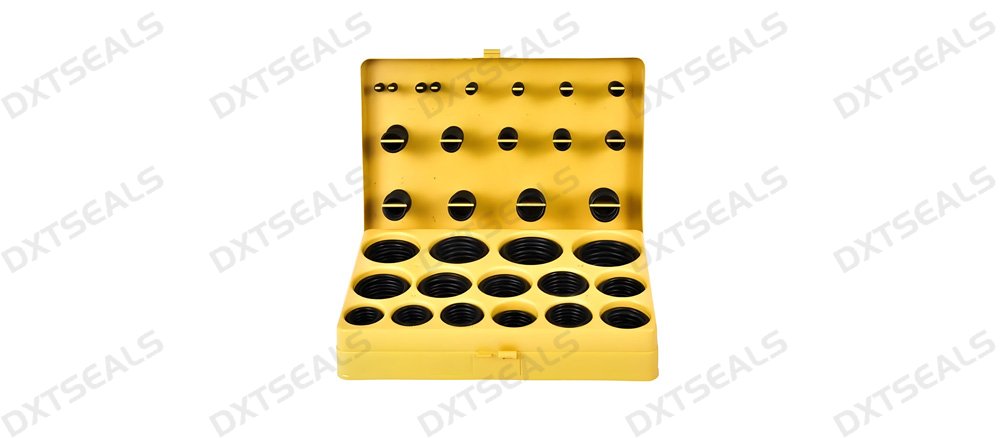Introduction
Rubber seals are an essential part of many industrial applications, providing reliable sealing solutions across a variety of industries. From automotive engines to aerospace systems, rubber seals ensure that equipment remains leak-proof, durable, and efficient. In this article, we will dive into the features, benefits, and industrial uses of rubber seals, helping you understand why they are such a vital component in modern engineering.
1. What Are Rubber Seals?
Rubber seals are flexible sealing components made from various rubber materials, designed to prevent the leakage of fluids, gases, or particles between two mating surfaces. They are typically used in applications where flexibility, resilience, and chemical resistance are required. The most common types of rubber materials used for sealing include:
- Nitrile (NBR)
- EPDM (Ethylene Propylene Diene Monomer)
- Silicone
- Viton (FKM)
- Neoprene
Each rubber material has its unique properties, making it ideal for different temperature ranges, chemical environments, and mechanical stresses.
2. Key Features of Rubber Seals
✅ Flexibility and Conformability
Rubber seals are highly flexible, allowing them to adapt to a wide range of mating surfaces. This makes them ideal for applications where parts may not be perfectly aligned or where there are slight variations in surface roughness. Their ability to conform to uneven surfaces ensures a tight, leak-proof seal.
✅ Resilience
Rubber seals are designed to recover from deformation. This resilience is crucial in applications where the seal is subjected to repetitive stress or movement. Whether in rotating shafts, piston seals, or door seals, rubber maintains its sealing capability over time, even with continual compression.
✅ Chemical Resistance
Rubber materials such as Nitrile and Viton offer excellent resistance to a wide range of chemicals, including oils, solvents, and fuels. This makes rubber seals a preferred choice in industries like automotive, chemical processing, and oil and gas.
✅ Thermal Stability
Rubber seals are available in materials with varying degrees of temperature resistance, from the low-temperature flexibility of EPDM to the high-temperature tolerance of Viton. This makes them adaptable to both cold and hot environments, maintaining seal integrity across diverse applications.
✅ Easy to Manufacture and Customize
Rubber seals can be manufactured into various shapes and sizes, making them highly customizable for specific needs. Whether it's O-rings, gaskets, shaft seals, or custom-molded seals, rubber seals can be tailored to meet precise specifications for each application.
3. Benefits of Rubber Seals in Industrial Applications
✅ Leak Prevention
The primary function of rubber seals is to prevent leakage of liquids, gases, and particles. This is particularly important in industries such as automotive, aerospace, and hydraulics, where even small leaks can lead to system inefficiency or failure. Rubber seals provide a reliable barrier, ensuring that critical systems remain sealed and operational.
✅ Enhanced Durability
Rubber seals are built to last. Their resilience, combined with wear resistance, makes them suitable for long-term use in harsh environments. With the right material, rubber seals can withstand years of mechanical stress, temperature fluctuations, and exposure to chemicals without losing their effectiveness.
✅ Cost-Effectiveness
Compared to other sealing materials such as metal or plastic, rubber seals are generally more affordable. Their low manufacturing cost, coupled with their long lifespan, makes them an economical solution for a wide range of industries.
✅ Noise and Vibration Reduction
Rubber seals also help reduce noise and vibration. In automotive and machinery applications, rubber seals provide cushioning and damping, which minimizes the impact of vibrations and improves the overall user experience.
✅ Versatility
Due to their wide range of material options, rubber seals can be used in almost every industry. From the food industry to pharmaceutical manufacturing, rubber seals are adaptable to a variety of environmental conditions and performance requirements.
4. Industrial Applications of Rubber Seals
4.1 Automotive Industry
In the automotive sector, rubber seals are essential for maintaining the integrity of engines, doors, windows, and fuel systems. They ensure that engine compartments remain airtight, preventing the leakage of fuel and gases. In addition, weather seals help reduce noise and vibration while keeping the vehicle’s interior comfortable.
- Applications: Engine seals, fuel system seals, door seals, windshield seals.
4.2 Aerospace Industry
In aerospace, rubber seals play a critical role in ensuring that aircraft parts remain tightly sealed under varying pressure and temperature conditions. O-rings and gaskets are commonly used in hydraulic systems, fuel systems, and aircraft doors to maintain safety and reliability.
- Applications: Hydraulic seals, fuel tank seals, cabin door seals.
4.3 Food and Beverage Industry
Rubber seals are used in the food processing industry to prevent contamination and ensure the sanitary transport of food products. FDA-approved rubber materials ensure that seals meet stringent hygiene standards while maintaining functionality.
- Applications: Food packaging, processing equipment seals, water filtration systems.
4.4 Oil and Gas Industry
The oil and gas industry often involves high-pressure and chemically harsh environments, making rubber seals essential for ensuring system integrity. Rubber seals such as Viton and Nitrile are commonly used in piping systems, valves, and pressure regulators to prevent leaks and enhance performance.
- Applications: Piping system seals, valve seals, pressure regulator seals.
4.5 Medical and Pharmaceutical Industry
In the medical industry, rubber seals are vital for ensuring the integrity of medical devices and pharmaceutical packaging. Rubber diaphragms and gaskets are used in drug delivery systems, syringes, and iv bags to prevent contamination and ensure sterility.
- Applications: Syringe seals, medical device seals, pharmaceutical packaging seals.
5. Conclusion
Rubber seals are indispensable components in a wide range of industrial applications. With their flexibility, chemical resistance, thermal stability, and durability, they provide essential sealing solutions for industries such as automotive, aerospace, food processing, oil and gas, and more. Whether you are designing new equipment or maintaining existing systems, rubber seals ensure that your operations run smoothly, safely, and efficiently. By selecting the right type of rubber seal for your specific needs, you can enhance system performance, reduce maintenance costs, and improve the longevity of your equipment.

